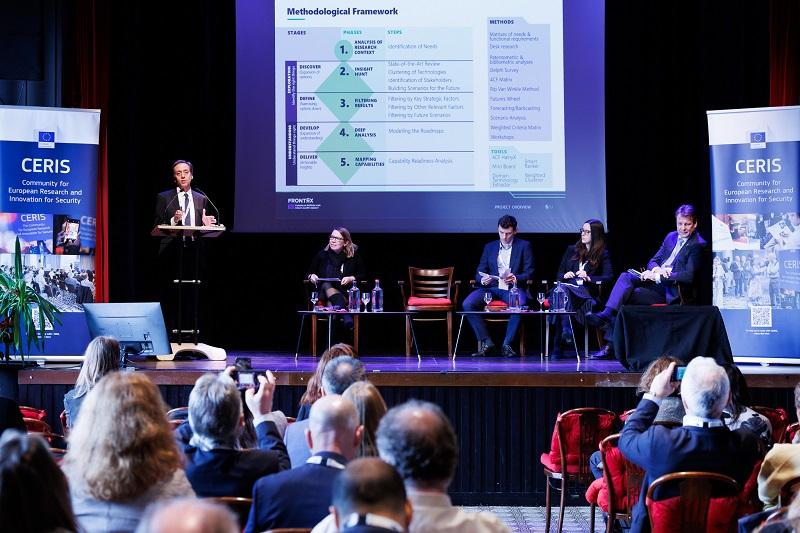
Anticipating the future, both in terms of threats and opportunities offered by new emerging technologies is a real challenge. Having the capacity to depict plausible futures, to identify upcoming risks and to propose early responses can be of invaluable help to decision makers. Many organisations, including the European Commission, have developed instruments that provide timely assessment of technology trends on a regular basis.
With the aim of analysing the key components that should be addressed for a more tailored foresight approach to the civil security and to make the necessary links with Key Enabling Technologies, more than hundred participants met on 5 March 2024 in Brussels for the workshop on Foresight and Key Enabling Technologies. The workshop was organised by DG HOME’s Security Research and Innovation Unit, under the Community for European Research and Innovation for Security (CERIS). Foresight and Key Enabling Technologies successfully brought together participants from different security sectors including border management, customs and law enforcement among which were security practitioners, researchers, industry and civil society organisations and representatives from the European Commission and NATO.
After welcome address brought by DG HOME Innovation and Audit Director Marta Cygan and Keynote Speech from Antonia Mochan from the European Commission’s Joint Research Centre, participants had opportunity to learn more about EU security research projects AHEAD, POLIIICE, NIGHTINGALE and STARLIGHT. At the beginning of the event, the project AHEAD presented a 360-degree approach accounting for megatrends, but also contextual elements (i.e. legal, ethical, societal and economic) to design and operationalise a sustainable capability-based civil security foresight framework. The presentation from the POLIIICE project illustrated how innovative solutions can help in intercepting communication among criminals. The NIGHTINGALE project looked into the handling of mass casualties after a disaster, while STARLIGHT illustrated how to detect abnormal behaviour in large crowds.
In the first panel discussion, panellists discussed Enhancing Foresight Methods tailored to security sectors, while in second panel Challenges and opportunities for Key Enabling Technologies were discussed. Frontex and Europol presented the mechanisms that they are using for a more impactful foresight in strategic planning. The NATO representative presented the NATO model on stakeholder engagement in NATO’s foresight and policy planning. Speakers also underlined the importance of innovative procurement and the need for fast tracks to innovation when developing new technologies. Furthermore, participants had the opportunity to find out more about DG HOME’s study titled 20 years of EU-Funded Civil Security Research and Innovation, to which they can contribute with their valuable feedback, and about the CEPOL’s Research Bulletin.
During the workshop participants agreed that a forward-looking capability-driven approach in security is the most adequate way for identifying upcoming threats and for developing timely responses and that EU-funded security research is crucial to foster strategic foresight in policy-making.
Details
- Publication date
- 12 March 2024
- Author
- Directorate-General for Migration and Home Affairs
